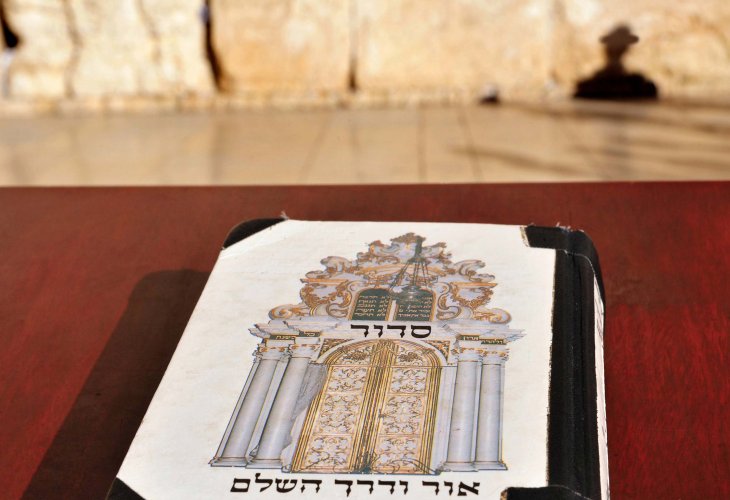Beginners Guide
Who Wrote the Jewish Prayers? The Hidden Power and Purpose Behind the Siddur
Jewish prayer was divinely crafted to open heavenly gates, repair spiritual worlds, and help us connect to every aspect of life with purpose and intention
 (Photo: Shutterstock)
(Photo: Shutterstock)The three daily Jewish prayers were established by the three patriarchs: Avraham instituted Shacharit (the morning prayer), Yitzchak instituted Mincha (the afternoon prayer), and Yaakov instituted Arvit (the evening prayer).
The specific text of the prayers, however, was composed later by the Men of the Great Assembly (Anshei Knesset HaGedolah) during the time of the Second Temple. This council was founded by Ezra the Scribe and consisted of 120 elders.
Opening Heavenly Gates and Repairing Spiritual Worlds
The Amidah (Shemoneh Esreh) prayer was written through Ruach HaKodesh (divine inspiration) and contains sacred combinations of letters that open spiritual chambers in Heaven when recited in its precise, traditional form.
The Mishnah Berurah (Orach Chaim 101:13) explains: “When the Men of the Great Assembly established the wording of the prayer, there were 120 elders, among them several prophets. They carefully selected every word and letter according to deep and hidden mystical secrets. Even if one does not understand the meanings or intentions, by reciting their words exactly as composed, the holiness of the words themselves acts and ascends properly in Heaven — something not achieved when praying in other languages.”
Rabbi Chaim of Volozhin, in Nefesh HaChaim (Gate 2, Ch. 10), elaborates: “It was not for nothing that 120 elders — among them prophets, found it necessary to compose even a short prayer. With their divine insight and prophetic vision, knowing the pathways of creation and the order of the celestial chariot, they fixed each word deliberately, perceiving how each individual letter radiates light essential for the repair of many worlds and heavenly forces.”
Rabbi Chaim continues: “Even the profound mystical intentions revealed by our early sages and the holy Arizal are but a drop in the ocean compared to the inner depth of the intentions encoded by the Men of the Great Assembly. No human being could replicate such a magnificent spiritual system — a prayer text that, with every recitation, renews and realigns the higher and lower worlds.” (Nefesh HaChaim, Gate 2, Ch. 13)
A Prayer that Covers Everything Important
The fixed text of the Amidah includes all of a person’s needs — both personal and communal, for livelihood, health, peace, safety, forgiveness, and spiritual growth.
If prayer were left entirely to personal expression, people would likely focus only on their immediate worries, and neglect other vital aspects of life. The fixed structure ensures that every day we remember to connect all dimensions of our existence to the Creator.
Furthermore, without a fixed text, many would pray only occasionally, or say rushed, shallow prayers when distracted by daily pressures. The structured format keeps us anchored in meaningful communication with God — even when our hearts feel distant.

